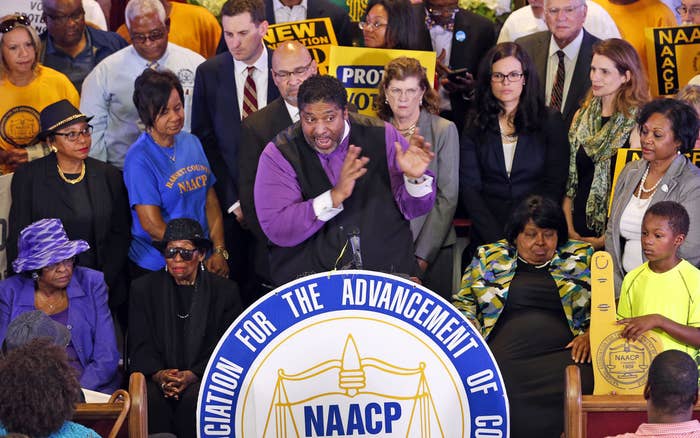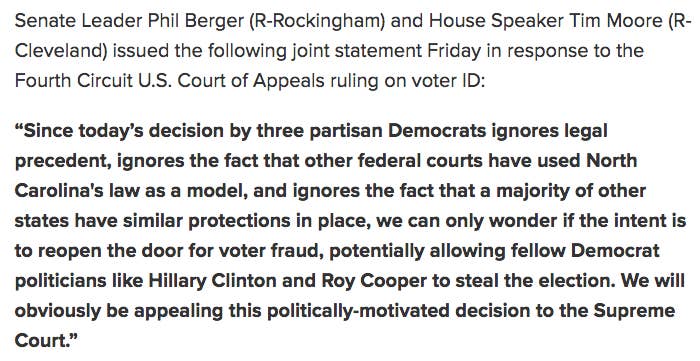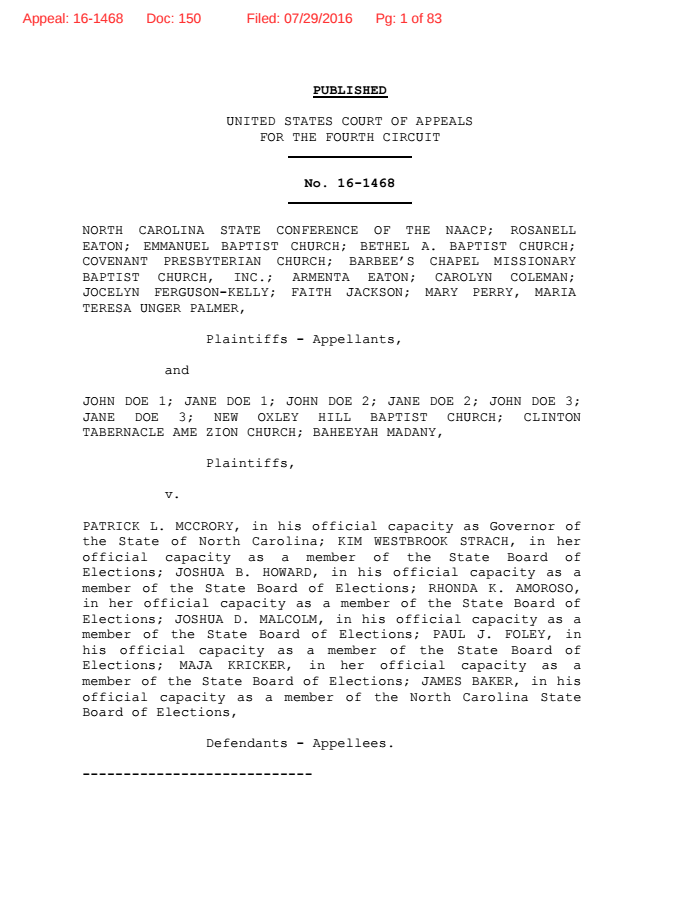
WASHINGTON — A federal appeals court struck down several voting restrictions passed by North Carolina's lawmakers in 2013, finding that the provisions were enacted with "racially discriminatory intent" in violation of the Voting Rights Act and the Fourteenth Amendment's Equal Protection Clause.
Among the provisions in the North Carolina law that the appeals court has ordered the state not to enforce are limits on the type of photo ID required for voting; reductions to the amount of early voting in the state; and elimination of same-day registration, out-of-precinct provisional voting, and preregistration that allowed 16- and 17-year-olds to indicate an intent to register when they turned 18.
"The only clear factor linking these various 'reforms' is their impact on African American voters," the 4th Circuit Court of Appeals held on Friday.
The court ruled that "the new provisions target African Americans with almost surgical precision," with the effect of taking away their "opportunity [to vote] because [they] were about to exercise it."
In particular, the court looked to the fact that "the legislature requested and received racial data as to usage of the practices changed by the proposed law" before passing the law.
Looking at the facts underlying the enactment of the law, Judge Diana Motz wrote for the court, "[W]e can only conclude that the North Carolina General Assembly enacted the challenged provisions of the law with discriminatory intent."
North Carolina can accept the ruling, seek review from the full 4th Circuit, or ask the Supreme Court to hear an appeal of the decision.
The ruling follows a decision from the 5th Circuit Court of Appeals last week in which that court — in a divided, en banc decision — held that Texas' voter ID law had a discriminatory effect. The appeals court there sent the case back down to the district court to determine the appropriate remedy.
In Friday's decision, the 4th Circuit went further, finding that the law was motivated by a discriminatory intent — not just that it had a discriminatory effect. Motz's decision for the court took particular and repeated aim at the district court judge's findings in the case.
"[T]he district court apparently considered [the law] simply an appropriate means for one party to counter recent success by another party," the 4th Circuit Court of Appeals wrote of the Republican-led legislature. "We recognize that elections have consequences, but winning an election does not empower anyone in any party to engage in purposeful racial discrimination."
The court found that there was no need to send the case back down to the district court because its review of the record in the case "permits only one resolution of the factual issue" — a finding that race was a "but-for" cause of the passage of the provisions, in other words, the provisions would not have been passed but for race considerations.
As such, the court permanently enjoined the state from enforcing any of the five provisions "regarding photo ID, early voting, same-day registration, out-of-precinct voting, and preregistration" under Section 2 of the Voting Rights Act.
The court did not, however, issue the remedies requested by the plaintiffs under Section 3 of the Voting Rights Act, putting poll observers in place during elections and putting the state under preclearance obligations — a provision "rarely used," the court noted, and "not necessary here in light of our injunction."
Motz did not join the court's opinion as to the issuance of the permanent injunction for the photo ID provision. That portion of the opinion was written by Judge James Wynn Jr. — who, along with Judge Henry Floyd, had joined the remainder of Motz's decision.
Motz wrote, in dissenting to that one issue, that a later amendment to the photo ID provision — providing for a "reasonable impediment exception" to the photo ID requirement — raised enough of a question about whether that remedied the unconstitutionality of the photo ID provision that she would have issued a temporary injunction as to that provision with a remand to determine the appropriate remedy.
Update at 6 p.m.: Legislative leaders respond to the 4th Circuit's ruling.


